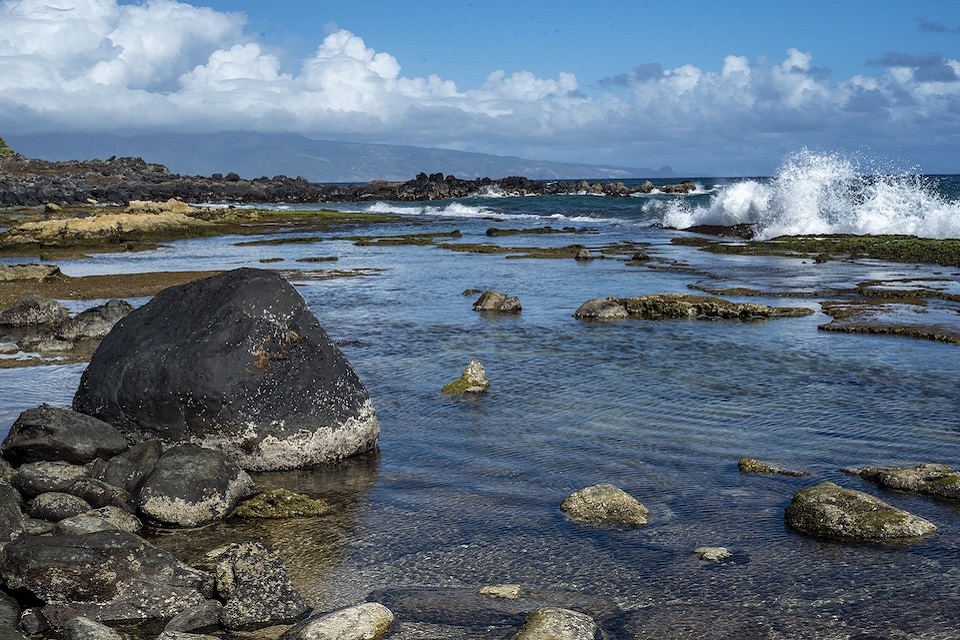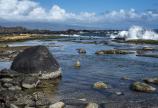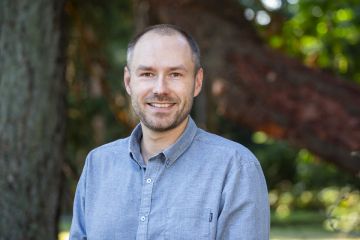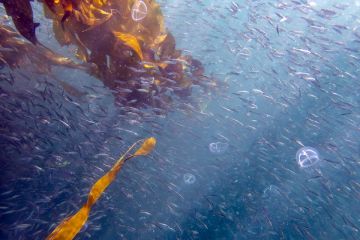'Solid Carbon' among Top 100 proposals for MacArthur $100M grant

An international research project led by Ocean Networks Canada (ONC), a University of Victoria initiative, was announced today as one of the highest-scoring proposals in the prestigious 100&Change competition by the MacArthur Foundation to help solve one of the world’s most critical problems—climate change.
“Solid Carbon: A Climate Mitigation Partnership Advancing Stable Negative Emissions,” which brings together researchers from Canada and the United States, aims to turn the greenhouse gas carbon dioxide (CO2) into rock by permanently injecting it beneath the Earth’s ocean floor. Solid Carbon is one of 755 original proposals that made it to the Top 100 within the 100&Change competition for a single US$100 million grant. This ambitious project was the recipient of $1.5 million funding from the Pacific Institute for Climate Solutions for a four-year feasibility study under its Theme Partnership Program.
The research team will combine six state-of-the-art proven technologies in a way that has never been conceived until now, to deliver safe and reliable CO2 removal. With climate change scenarios showing that solutions like these are required to limit warming to below 1.5 degrees Celsius, the research is timely and urgent, says Kate Moran, principal investigator of Solid Carbon and president and chief executive of ONC.
“Youth around the world are demanding action—we are listening. We have the research know-how in BC and we are collaborating globally to advance a solution as quickly as we can to help safeguard the health of our planet,” says Moran.
“Solid Carbon has now passed three rigorous rounds of reviews to make it into the Top 100. This is a significant milestone and affirms the credibility of this opportunity and the ambition of our global team of experts. If we can advance the technology to a commercially viable stage mid-century, we can aim to offer the world a scalable solution to combat climate change.”
Each proposal was evaluated using four criteria: impactful, evidence-based, feasible and durable. The proposals were rigorously vetted, undergoing MacArthur’s initial administrative review, a peer-to-peer review, an evaluation by an external panel of judges, and a technical review by specialists whose expertise was matched to the project. From the Top 100, MacArthur’s board of directors will select up to 10 finalists from these high-scoring proposals in the spring.
“Successfully moving into the Top 100 of the MacArthur Foundation grant competition reflects UVic’s ambition as a research-intensive university to identify novel, high-impact solutions to the most challenging global problems. Climate change is a high priority for us because we know our experts—in partnership with scientists around the world—can make a difference for people and the planet,” says Lisa Kalynchuk, UVic’s vice-president research.
Since the inaugural 100&Change competition in 2016, other funders and philanthropists have committed an additional US$419 million to date to support bold solutions by applicants. MacArthur created a Lever for Change website to unlock significant philanthropic capital by helping donors find and fund vetted, high-impact opportunities through the design and management of customized competitions.
The foundation launched the Bold Solutions Network today, which features Solid Carbon as one of the Top 100 from 100&Change and other projects.
Ocean Networks Canada, an initiative of the University of Victoria, monitors the west and east coasts of Canada and the Arctic to continuously deliver data in real-time for scientific research that helps communities, governments and industry make informed decisions about our future. Using cabled observatories, remote control systems and interactive sensors, and big data management, ONC enables evidence-based decision-making on ocean management, marine safety and environmental protection. ONC also works in collaboration with educators, students, communities and Indigenous peoples on ocean monitoring initiatives along BC’s coast and in the Arctic.
Read the MacArthur Foundation news release here.
A media kit containing a high-resolution photo and project description is available on Dropbox.
-- 30 --
Photos
Media contacts
Jennifer Kwan (University Communications + Marketing) at 250-721-7641 or researchcomm@uvic.ca
In this story
Keywords: climate, oceans, research, Ocean Networks Canada





